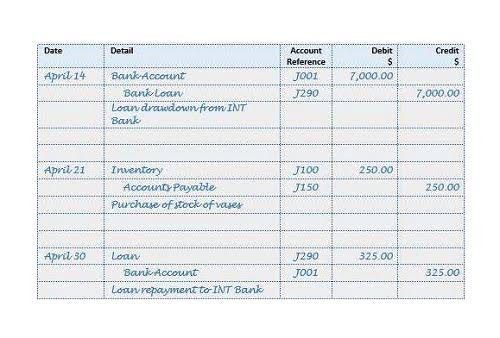What Are ACH Debit Return Charges?
August 14, 2020Outsourced accounting: benefits, types, and getting started
September 25, 2020
On the other side, the transaction will impact the accounts receivable as the customers may not yet make payment. The progress of payment will depend on the contract which may be related to the specific result. An increase in Construction in Progress (CIP) can indeed impact a company’s financial ratios, and one ratio affected could be the asset turnover ratio. This includes monitoring changes in market demand, material costs, labor availability, and other external influences that could impact the project’s feasibility.
- These extras make CIP or construction in progress accounting relatively more complicated than regular business accounting.
- CIP is crucial because it allows companies to accurately track and report the costs of ongoing construction projects.
- Companies that don’t track CIP costs accurately and separately make their records more complicated than they need to be.
- The debt-to-equity ratio measures the proportion of a company’s financing that comes from debt compared to equity.
- However, accounting teams may struggle to correctly capture the incremental costs arising due to these changes.
The account Construction Work-in-Progress will have a debit balance and will be reported on the balance sheet as part of a company’s noncurrent or long-term asset section entitled Property, plant and equipment. Construction-in-process accounting involves capturing and accumulating all costs related to building or developing fixed assets during the construction period. Tracking CIP provides deep visibility into project performance, ensures accurate financial reporting, and facilitates operational decisions.
AccountingTools
According to the matching principle of accounting of accrual accounting, the expenses related to certain revenues must be recorded in the same period when they were incurred. One thing to understand is that only capital costs related to an asset under construction are to be kept in the CIP account. The operating costs related to a specific period https://www.bookstime.com/articles/what-is-the-accounting-journal-entry-for-depreciation must be charged to the same accounting period. All the costs of assets under construction are recorded in the ‘Construction In Progress Ledger Account.’ They are shifted to the asset side of the balance sheet from the ledger. Construction in progress, or most commonly known as CIP, is a fixed asset account with a natural debit balance.

This method allows companies to reflect the value of these incomplete assets accurately on their financial statements, providing a clearer picture of their overall financial position. Every business must prepare up-to-date and accurate reports to account for their profits and expenses. Perhaps one of the most important is the balance sheet that indicates a company’s net worth.
Depreciation Expense Account Vs. Allowance for a Depreciation Account
If the outcome of a contract cannot be estimated reliably, then no profit should be recognized. This is because recognizing profit would give a misleading picture of the contract’s true financial status. Instead, contract revenue should only be recognized to the extent that contract costs are expected to be recoverable. This approach may not always result in the highest reported profits in the short term, cip accounting but it should give a more accurate picture of a contract’s true financial position over time. Once the asset is put into service, the construction in progress account will be credited, and the debit is transferred to property, plant, and equipment. With construction companies always on the move, there are more categories and accounts to keep track of, creating challenges that are unique to this industry.
- The capital costs are held in the construction in progress account, which is a fixed asset account shown on the balance sheet as a subaccount of property, plant and equipment.
- This can be done by a variety of methods, but the most common is to use the percentage of completion method.
- CIP accounting, or Construction-in-Progress accounting, is an essential aspect of accounting for businesses in the construction industry.
- The IAS 11 construction contract is a comprehensive document dictating the complete accounting for construction in progress.
- In this article, we will provide a clear definition of CIP in accounting, explore its purpose, discuss the accounting treatment for CIP, and provide examples to illustrate its application.
- Profitability – Inappropriate capitalization or errors in accumulating project expenses can undermine income statement accuracy.
- Companies that build and manage properties may maintain separate CIP accounts for each property under development to facilitate the tracking of project expenses.
The CIP account is basically just an account for recording all the different expenditures that will occur during a construction project. A construction work-in-progress asset is any asset that is not currently usable, such as assets that are undergoing testing or that a company is building. Depending on the project’s size, construction work-in-progress accounts can be some of the largest fixed asset accounts in a business’s books. Rather than construction in progress, you might see construction in process on financial statements. These two phrases might be used interchangeably, or they might mean something else entirely to two different businesses.
What Is Construction-in-Progress Accounting?
Construction in progress refers to all the costs that company spends to build the non-current assets but not yet completed. It provides a clearer picture of the true cost of the project and ensures that costs are not expensed prematurely before any revenue is generated. Regular updates and reviews are required for CIP accounting to accurately reflect changes in project status, ensuring that reported figures remain current and reliable. Given this, construction companies should delegate their finances to experts, to teams like Monily with the capacity and knowledge to manage multiple balance sheets simultaneously. Our knowledgeable team has decades of experience managing construction company accounts, and you can feel confident that we will navigate your company’s specific situation with care and expertise. Accurate CIP tracking paves the way for successful on-time and on-budget project delivery – delivering immense value for construction firms and their stakeholders.


